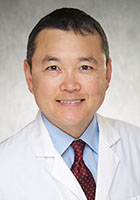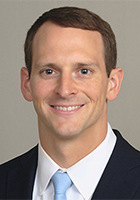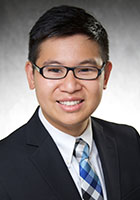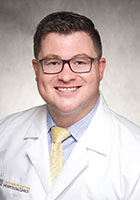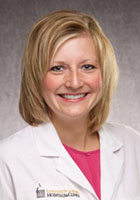Learners in the Carver College of Medicine are invited to provide examples of effective teaching at the end of each rotation. Read what our trainees recently had to say about Internal Medicine educators below. Read previous submissions.
Eiyu Matsumoto, MD, Clinical Assistant Professor of Internal Medicine
Submitted by Conor Burke-Smith
Allowed me to inform a patient about their diagnosis. This was good practice for me and something I don’t often have the opportunity to do.
Manish Suneja, MD, Clinical Professor of Internal Medicine
Submitted by Samiksha Annira
Dr. Suneja is one of the best, if not the best, attending that I have ever worked with. He is such a great teacher and always finds opportunities to teach during rounds, at the bedside, and whenever there is downtime in the afternoon. He does a great job of simplifying difficult concepts and explaining them in a very enthusiastic way. I appreciate that he doesn’t just lecture at us, but he actively involves us during teaching sessions and uses visual aids as well. He also creates a great environment for students to feel comfortable making mistakes/answering questions wrong and uses these moments as great learning opportunities. He is so great with all of his patients and sets an amazing example to us students as to what a strong clinician looks like. I also really appreciate that he asks students for feedback about the curriculum, whenever we voice our concerns to him I really feel like he is there to advocate for students and improve the curriculum as much as he can. I feel very lucky to have been able to work with him on 6RC and I hope I get more opportunities to work with him in the future!
Christian Anderson, MD, PhD, First Year Resident
Submitted by Jared Larson
Christian showed his enthusiasm for teaching on day 1 of my rotation. I remember he went through EKG interpretation with me as well as our other medical student and showed us other interesting pathologies he had recently seen. As someone who hadn’t looked at a real patient’s EKG in several months this was much needed. He also never hesitated to point out interesting physical exam findings or learning points related to our patients and always took the time to make sure we understood the clinical reasoning behind the plans for the patients we were following.
Justin Chau, MD, Third Year Fellow, Hematology and Medical Oncology
Submitted by Kory Ford
Dr. Chau was a fantastic teacher and mentor during my time on heme/onc team A. He went out of his way to ask me what I was struggling with, as well as what I was interested in, and explained clearly and thoroughly difficult concepts. For example, we were admitting a patient with lymphoma and our senior had never admitted any similar patients previously, so Dr. Chau spent 15-20 minutes going through the whole workup from admission to discharge of a lymphoma patient. He then pulled up the previous CT scans and took me though the basic interpretation and reading of the abnormal CTs. This is just one of several times where he went out of his way in the name of teaching and education for the betterment of the team’s knowledge and patient care. I was thoroughly impressed with Dr. Chau’s demeanor and commitment to my personal education and the education of the team, and I feel fortunate to have had time working with him.
Andrew Bryant, MD, Clinical Assistant Professor of Internal Medicine
Submitted by Dayton Rand
Dr. Bryant was a fantastic teacher for me to learn from. Before meeting him on the first day, he sent a packet to me and to his residents that outlined his expectations for our time working together. Receiving this document helped me to understand what was important to Dr. Bryant before the rotation even began. One thing that was emphasized was that working with him would be a learning experience for everyone. When I first arrived, Dr. Bryant handed me a list of about 15-20 topics that he felt comfortable presenting to me and the other medical student, an M3 on a sub-I rotation. He instructed me to mark what topics I would like more information on, and he would teach on each of them. Sure enough, he gave a chalk talk every single day I was on service. His talks were thorough yet concise and gave me the essential information necessary for clinical practice regarding each topic. I greatly appreciated the extra effort he made to teach every day. When I would present patients to him, he always gave me the first chance to come up with a problem-based plan for the patient. As we discussed the plan, he went out of his way to involve me. I could tell he was trying to get me to take ownership of each patient’s case. At the bedside, Dr. Bryant would give me the opportunity to explain the daily plan to my patients. He would also take time to demonstrate physical exam maneuvers. A final thing that Dr. Bryant did that greatly enhanced my learning experience was to provide regular feedback. At the end of each week or after a few days, Dr. Bryant would meet with each member of the team, one at a time, to give feedback on what we were doing well and what he would like to see us improve on. As a medical student this was incredibly helpful to me in two ways. First, I am a newcomer, so hearing that I am doing things well is very encouraging. Secondly, providing me with specific things to improve on gave me direction. Dr. Bryant really seemed to understand that as a medical student, I am preparing for residency, and I need guidance to take my skills to that next level. I very much appreciate all the teaching and advice Dr. Bryant gave me, and I hope I will get the opportunity to work with him again in the future.
Wendy Fiordellisi, MD, MS, Clinical Associate Professor of Internal Medicine
Submitted by Jessica De Haan
Dr. Fiordellisi is most effective at teaching NOT by lecturing at students but by exemplifying the kind of compassionate care that every doctor should aspire to offer to their patients. She involves the students by allowing them to mold the assessment and plan on their own before she intervenes to offer encouraging guidance. Even this process is an example of shared decision making as she makes my input feel valuable and appreciated. She encourages students to take each patient encounter as a learning example. Even the most standard of primary care visits become an exercise in both the art and science of medicine as she shows incredible insight into both the nature of organic and inorganic impact of disease on her patients.
Justin Buzick, MD, Third Year Resident
Submitted by Thomas Pak
Amazing senior resident. Guided me in handling a complex patient coming in with alcohol intoxication. Dr. Buzick showed tremendous grace and patience in dealing with a patient with substance use disorder. He utilized motivation interviewing, and helped the patient focus on past successes in addressing alcohol use disorder (like recalling times of longest sobriety). Dr. Buzick let me also try to take the lead with interviewing, and coming up with an assessment and plan. I’ve learned to a better doctor by following and working with Dr. Buzick.
Greg Kirkpatrick, MD, PhD, First Year Resident
Submitted by Thomas Pak
One of the smartest people I’ve interacted with. Dr. Kirkpatrick had a major focus on evidence-based medicine, along with helping me navigate the complexities of epic. Despite having such a busy schedule, I appreciate the moment when Dr. Kirkpatrick checks in on me. Dr. Kirkpatrick also helped me conduct a paracentesis, with the patient’s blessing. In addition, I was amazed by the sensitivity and grace with Dr. Kirkpatrick in discussing goals of care with a patient that did not have much time left.
Roger Struble, MD, Chief Resident (served as staff)
Submitted by Thomas Pak
Incredibly patient, ensure students are learning important teaching points from each patient, and does wonderful chalk talks like differential of hypokalemia. Roger Struble guided me in writing up a case report of a patient I saw with neurosyphilis.
